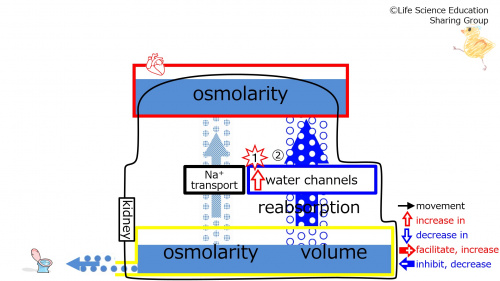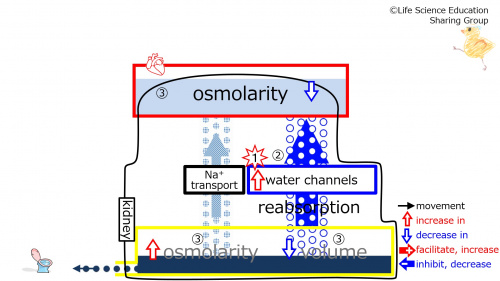| With an increase in the number of water channels, water reabsorption from the tubule increases. |
Prior to the number of water channels increasing (at baseline), we will make the assumption that the subject is in homeostasis with normal plasma and urine osmolarities (isotonic) and urine volume.
Step 1: Suppose that the number of water channels increases.
Step 2: With the increase in the number of water channels, water reabsorption from the tubule increases.
Step 3: With the increase in water reabsorption, diluted (hypotonic) solution enters the plasma. This decreases plasma osmolarity (diluted, hypotonic). Because diluted (hypotonic) solution leaves the tubule due to reabsorption, the fluid remaining in the tubule has an increased osmolarity (concentrated, hypertonic). Also, with the increase in water reabsorption, there is less water remaining in the tubule. Overall, the urine becomes concentrated and decreases in volume.
Challenge Quiz



